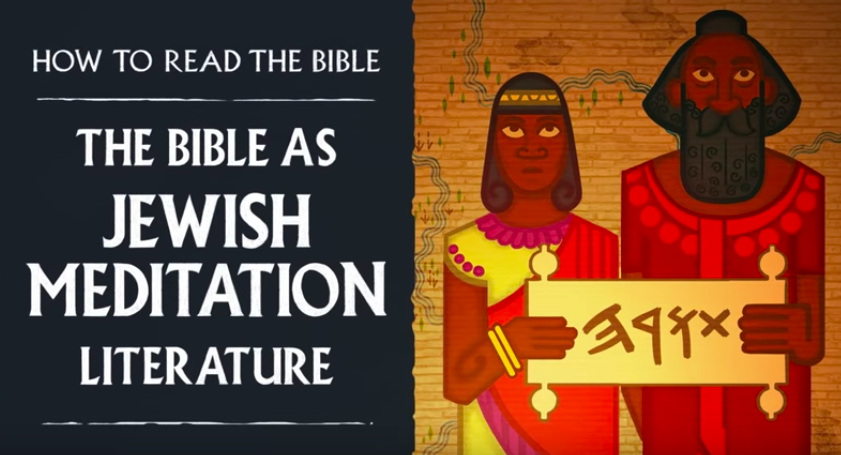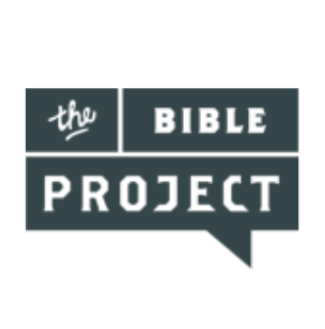Stick with it! The Bible Project’s three ways to read the Bible this year
The Bible Project // February 8, 2019, 6:30 pm

Photo by Aaron Burden on Unsplash
Here at The Bible Project, we love the Bible. But you probably know that by now.
We believe it’s a divine-human book that speaks God’s Word to His people and ultimately leads us to Jesus, the One who has power to change lives.
Amazing, right?
Through the Bible, Jesus transforms us. Yet, most of us struggle to engage the Bible.
The Bible is just too fascinating for anyone to stay in a “Bible rut”.
For some, it feels like an oppressive book of outdated rules. For others, golden tablets that dropped out of the sky, offering no wisdom for the modern world.
Then there are those who love the Bible but can’t find the time or energy to engage it. Or fear that they don’t know how. And, of course, a lot of us are just in a Bible-reading rut: We started strong in January, but we’ve kind of … faded. Better luck next year?
Wait! We want to help! We think the Bible is worth engaging, even in February. Or March. Or any day really. The Bible is just too fascinating for anyone to stay in a “Bible rut”.
We highlight three ways to engage the Bible:
1. Read the Bible with other people
Reading the Bible in community is one of the quickest ways to get out of a reading rut. It’s a practice that God’s people have always done to remind themselves of who they are and what they’ve been called to.
This remains true today.
Being part of a bigger dialogue about the Bible protects us from self-deception and keeps us focused on what we’re reading.
As we come together to read and discuss a passage, our pre-existing (and often staunchly held) stories about God, ourselves and the world are challenged. We’re forced to see the text in new ways and grapple with it, pushing us deeper into the biblical narrative, which in turn shapes us as God’s people rather than us shaping it.
Reading alongside others also guards us from distractions and deception.
If we only read the Bible by ourselves it’s pretty easy (and all too convenient) for God’s voice to start to sound like our own. Being part of a bigger dialogue about the Bible protects us from self-deception and keeps us focused on what we’re reading.
It also offers rich, redemptive fellowship – something we all crave.
(If you want to know more about this practice, check out the “Public Reading of Scripture” video.)
How to start:
One way to read the Bible in community is to sign up for the Read Scripture series or download the app and ask someone to go through it with you.
Read assigned portions from Scripture every day, meet with another person, people or small group regularly to discuss what you’ve been reading, and then respond to God’s Word together. It can be as formal or informal as you want.
Another way to read in community is to check out our suggested reading for each biblical book.
When you read brilliant scholars you’re entering the ongoing conversation taking place in the Christian community at large. Their area of expertise gives you new insight into the biblical books – insight that’s easy to miss when you’re reading alone.
You may never meet these scholars but you can benefit from being in community with them through their writing.
Finally, we’d invite you into our community – a community spanning 229 countries with over half a million subscribers committed to reading the Bible together. We’re constantly learning new things about the Bible as we read and explore its story and create content to communicate that story to others.
2. Meditate on the Bible in private
Reading the Bible with other people doesn’t mean you shouldn’t read the Bible alone. Both are integral parts of growing as disciples.
So, if your reading has grown stale, another way to shake things up is private meditation.
Slow down and experience the text in a way that affects our hearts and minds with the love of God.
By “meditation” we don’t mean emptying ourselves by chanting mindless mantras. Quite the contrary.
Christian meditation is about filling our hearts and minds with the divine, not emptying ourselves.
In terms of Bible reading, meditation is the practice of entering into the text by reading and rereading it out loud, allowing it to speak to us in such a way that we listen and truly hear it.
We fix and order our minds around the text, reading and rereading, until key words, phrases and ideas jump off the page at us. Then we chew on these words and ideas and begin to form questions that lead us into deeper reflection.
This causes us to slow down and experience the text in a way that affects our hearts and minds with the love of God.
(If you want to know more about this practice, check out “The Bible As Jewish Meditation Literature” video.)

The Bible Project creates videos, podcasts and study guides that explore the Bible’s unified story. They focus on the Bible’s overarching themes and each book’s literary design and are committed to understanding the Bible in its historical context.
How to start:
Choose a chapter or passage from your current reading plan and focus on it (the daily psalm would be a great place to start). Allow the text to roll around in your mind as you mutter the words aloud.
Try to put yourself in the passage. What emotions are you feeling? What details do you notice? What would you think if you were hearing these words for the first time? What words or images jump out at you?
Hearing a text repeatedly is a great way to actually hear the text, which is the goal of meditation.
Meditate on these questions and allow divine love and grace to fill you as you reflect on the answers.
Another creative way to meditate on Scripture is to listen to a text over and over again with a Bible app.
We recommend YouVersion’s free Bible App, which you can download on any device online at Bible.com. Once downloaded, choose your section of Scripture and play it over and over again doing the same practices mentioned above.
Hearing a text repeatedly is a great way to actually hear the text, which is the goal of meditation. Not to mention, it’s more accessible for some people, like young mums or busy caretakers, during chaotic seasons.
3. Respond to the Bible in prayer
A wonderful way to engage the Bible is through prayerful reading of Scripture, a mode of reading with an eye towards finding language out of which we form a prayer of response.
This differs from meditation in that meditation is an entering into the world of the text and allowing it to speak to us, while prayer is us speaking to God in natural response to the text.
Every day, read a psalm slowly, meditating on it and then forming a prayer of response.
To be clear, “prayerful reading” is not wrapping up our Bible time with general prayers about our lives. It’s a specific kind of praying that uses words and ideas from the text to shape a prayer of response.
The language and tone of the prayer should reflect the language and tone of the text.
For example, if you’re reading through Lamentations you form a prayer of lament that’s filled with grief over all the sin and wreckage in our broken world. Or, if you’re reading through Philippians, you form a prayer of thanksgiving that’s filled with joy in the midst of suffering using Paul’s language.
It’s not reading and then praying, as if the two were disconnected. It’s prayerful reading.
How to start:
The best place to start is in the Psalms. God’s people have always looked to the Psalms to give voice to their prayers. Plus, they were written to be prayed and sung aloud so they’re perfect for practising prayerful reading.
Every day, read a psalm slowly, meditating on it and then forming a prayer of response. Use the psalmist’s words and make them your own as you respond to all that God has revealed to you in the text.
Finally, take that prayerful language into your day’s responsibilities and relationships, allowing it to shape your day and, when done over time, shape your life.
It’s a simple practice that yields huge benefits in terms of spiritual formation.
Don’t wait until next year
We know it’s easy to fade in Bible reading. We’ve all been there. But don’t give up and buy into the idea that next year will be different.
It won’t be.
God’s Word is a living Word that speaks life to His people.
Today is the best possible day to engage God’s Word.
So forget the guilt over “what was” and resist the temptation to think “what could be” and jump in right now.
Try mixing things up with one of the ways listed above.
And remember, God’s Word is a living Word that speaks life to His people and leads us to Jesus, so it really is worth engaging.
This article was first published by The Bible Project and is republished here with permission.
We are an independent, non-profit organisation that relies on the generosity of our readers, such as yourself, to continue serving the kingdom. Every dollar donated goes directly back into our editorial coverage.
Would you consider partnering with us in our kingdom work by supporting us financially, either as a one-off donation, or a recurring pledge?
Support Salt&Light



